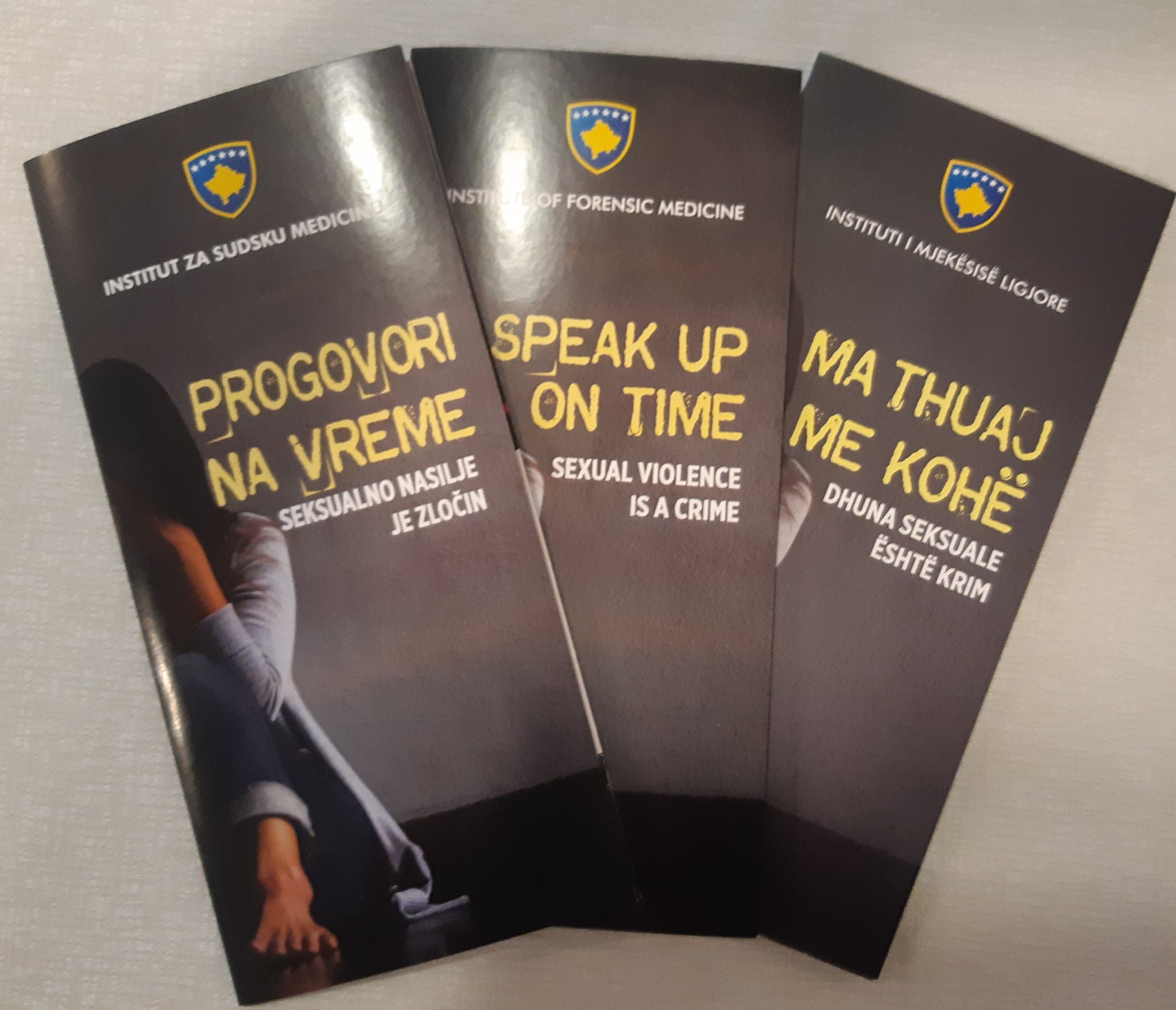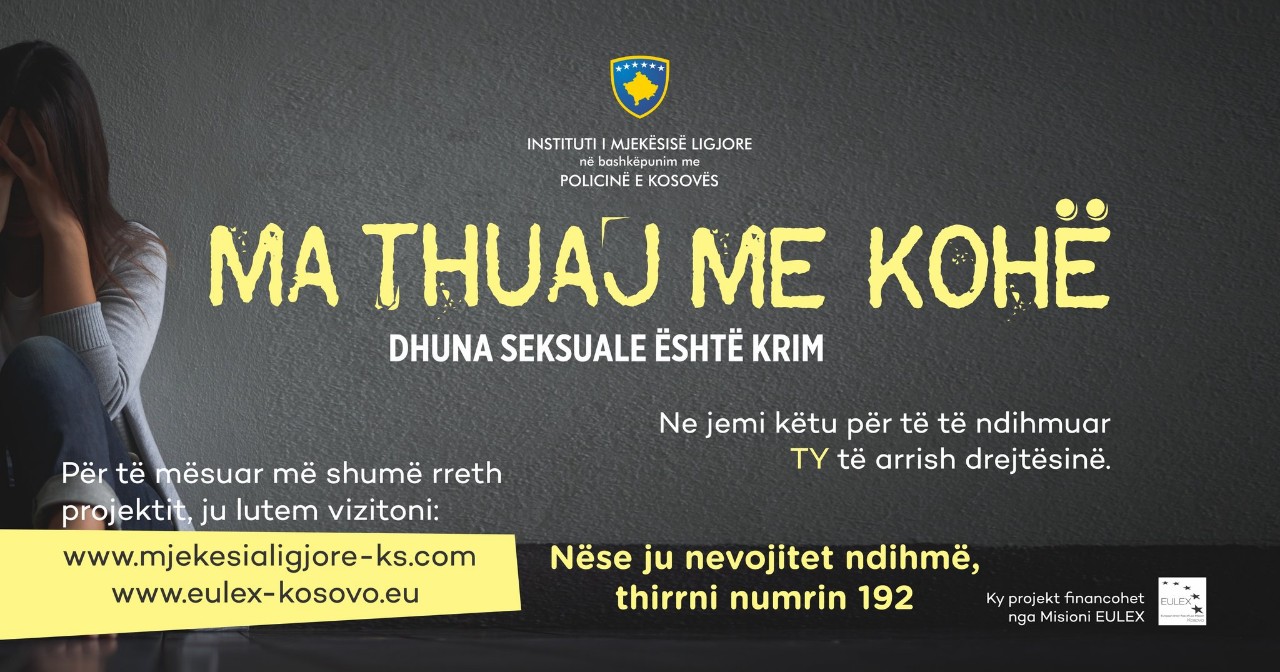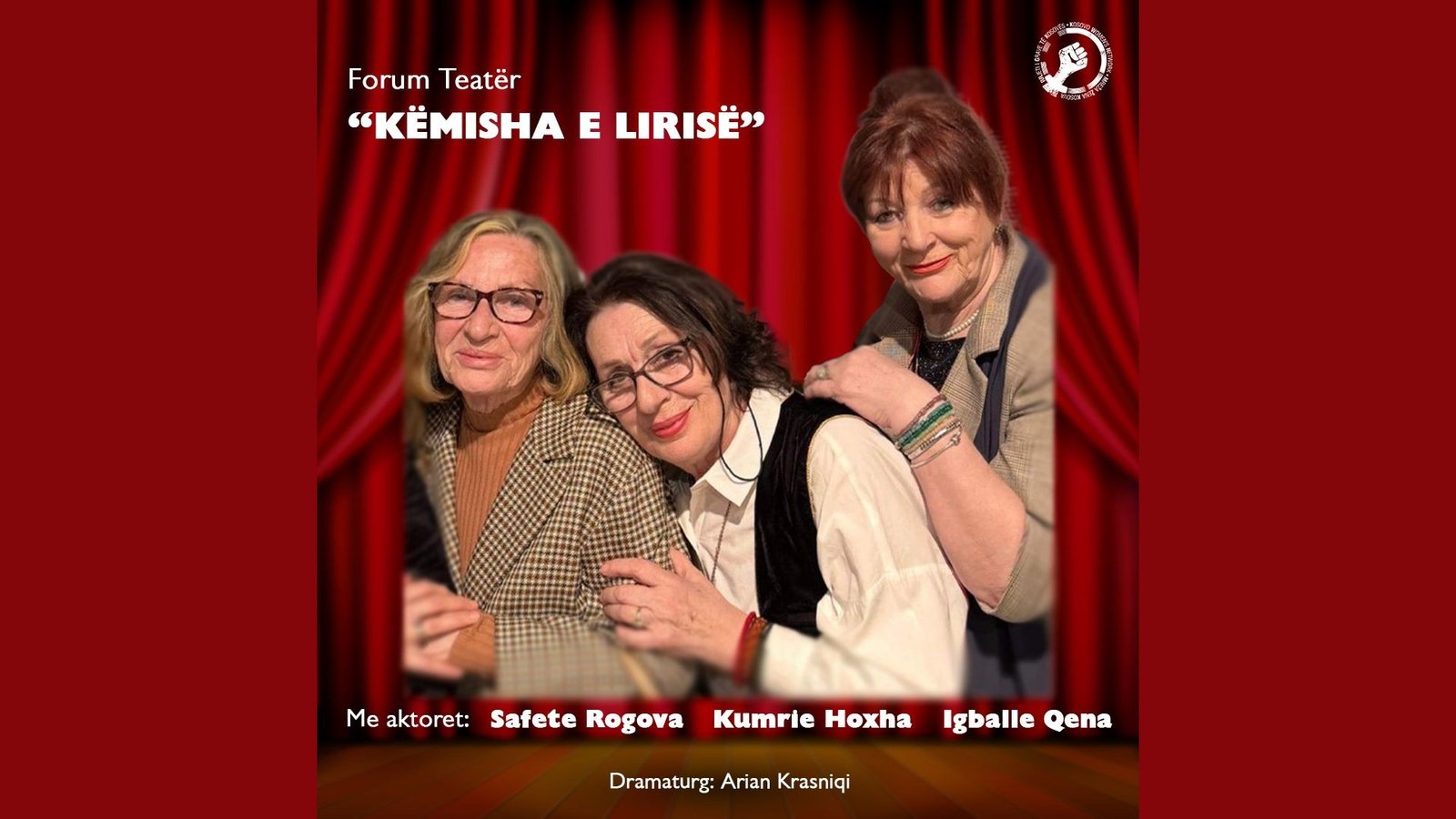Sexual violence in Kosovo remains one of the least reported forms of violence. Yet it needs to be reported in a timely way because collection of evidence can help to prosecute cases.
“Speak Up on Time” is a newly launched campaign stressing the importance of preserving biological evidence in sexual violence cases. The Institute of Forensic Medicine (IFM), in partnership with the Kosovo Police (KP) and EULEX, hosted a roundtable discussion 9 Sept. to commence the public information program.
Research reports from Kosovo Women’s Network (KWN) show that some key institutions charged with tackling the problem lack knowledge of how to treat it appropriately. Approaches to sexual violence victims continue to be inadequate, often putting the victim in difficult situations. This can discourage victims from reporting the violence and pursuing justice.

KWN’s findings also indicate minimal knowledge among the general public about the importance of collecting and preserving biological evidence in sexual violence cases.
Statistics of the Institute of Forensic Medicine show that:
- In just 28% of sexual violence cases is biological evidence collected
- About 90% of sexual violence victims are women or girls
- Most sexual violence victims are between 11 and 16 years old
- In 81% of sexual violence cases, the perpetrator is known to the victim
Former President of Kosova Atifete Jahjaga called for increased cooperation between relevant stakeholders in supporting wartime sexual violence survivors, as well as their social re-integration.
“We have worked to achieve this; however, we need to work harder in some fields: in the aspects of legal framework, institutional, socio-economic aspects, as well as offering access to justice for the survivors”, Jahjaga said.
Kosovo has undertaken initiatives to help survivors of sexual violence that occurred during wartime. Yet very little attention has been given to women and girls experiencing sexual violence nowadays. Unfortunately, 20 years after the war similar challenges are shared by women and girls suffering sexual violence, whether it be perpetrated by acquaintances or strangers.
Deputy Director of the Institute of Forensic Medicine, EULEX staff called for people to speak up about the issue. “Now is the time to raise public awareness of what sexual act and sexual violence is,” Tarja Formisto said.
A Forensics Medicine Specialist at the Institute of Forensic Medicine expressed a similiar sentiment. “This is our direct contribution to helping victims achieve justice and break the silence that surrounds those who have something to say and those who must hear,” Bergita Curri said.
The “Speak up in Time” campaign will continue through mid-2020.




